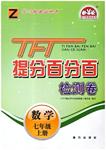题目内容
I go to visit my grandparents ________.
- A.from then on
- B.just now
- C.every now and then
- D.right now
C
from then on“从那时起”,前面的动词是一个表示延续动作的词:just now“刚才”,与前面的时态搭配错误;every now and then“偶尔,时不时地”;right now“立刻”。根据句意选择C项。
from then on“从那时起”,前面的动词是一个表示延续动作的词:just now“刚才”,与前面的时态搭配错误;every now and then“偶尔,时不时地”;right now“立刻”。根据句意选择C项。

练习册系列答案
 提分百分百检测卷系列答案
提分百分百检测卷系列答案
相关题目